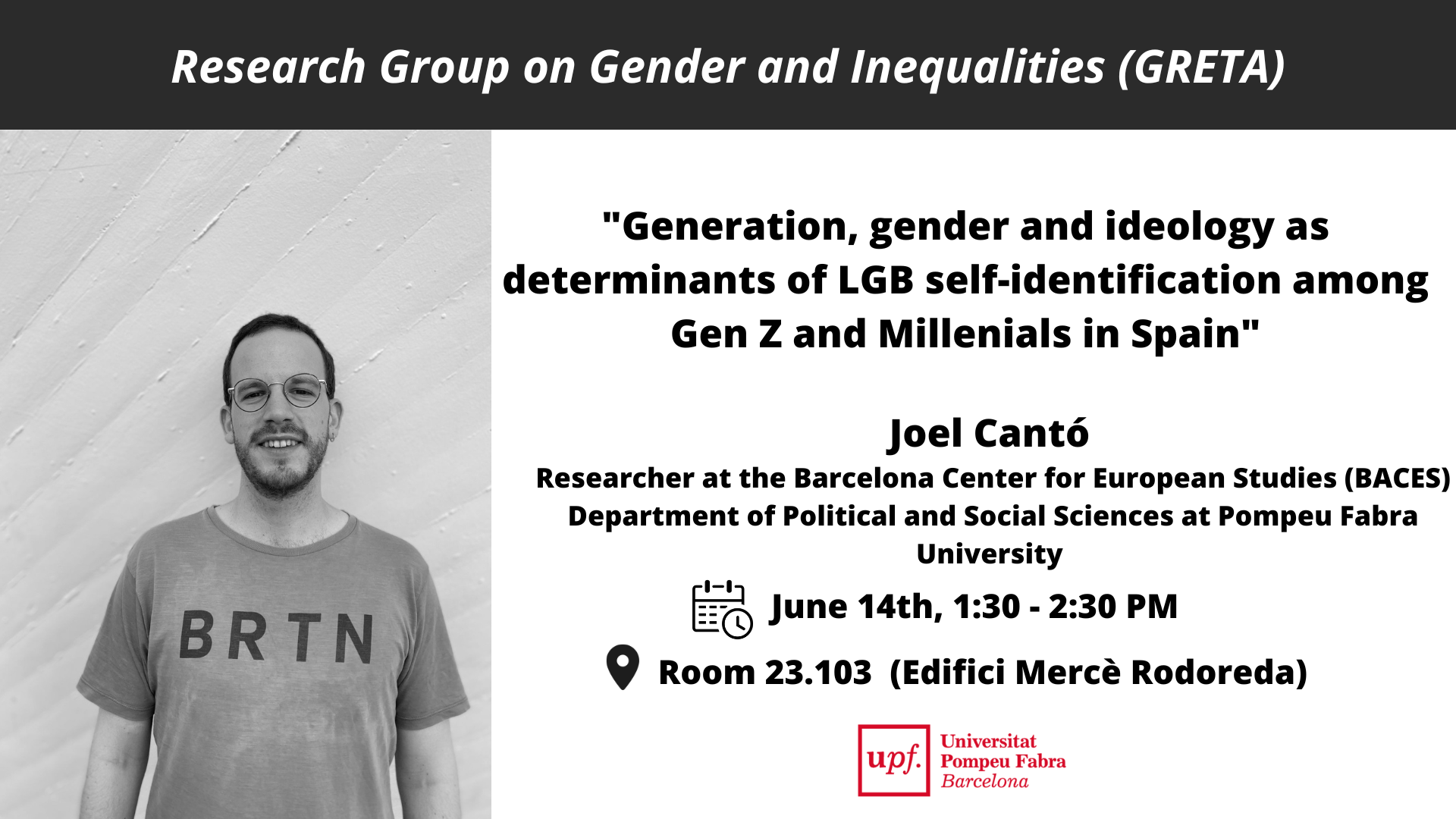Seminar "Generation, gender and ideology as determinants of LGB self-identification among Gen Z and Millenials in Spain"
Seminar "Generation, gender and ideology as determinants of LGB self-identification among Gen Z and Millenials in Spain"
Seminar "Generation, gender and ideology as determinants of LGB self-identification among Gen Z and Millenials in Spain"
14th of June at 1.30 PM - Room 23.103 in Mercè Rodoreda building

In a couple of weeks our second open seminar will take place. We will be hearing from Joel Cantó, member of GRETA, who is a Researcher at the Barcelona Center for European Studies (BACES) at the Department of Political and Social Sciences at Pompeu Fabra University. He has a MA in Political Science from Pompeu Fabra University. In September 2023, Joel will join the PhD in Political Science at the University of Toronto (Canada) in LGBTI+ Politics. His research interests include LGBTI+ political behavior, the expansion of LGBTI+ public policy at the subnational level in Europe, and nationalism.
The presentation will take place on June 14, 2023, 13:30-14:30, in Room 23.103 (Edifici Mercè Rodoreda), and is titled:
Generation, gender and ideology as determinants of LGB self-identification among Gen Z and Millenials in Spain
Abstract
Recent research shows an upsurge of LGBTIQ+ self-identification among Millennials and Generation Z and the rejection of traditional sexual labeling in the West. However, differences across gender and ideology are rarely assessed to understand self-identification as sexual minorities in the hegemonic Anglosphere literature. In this article, we examine Millennials and Gen Z sexual identification in Spain using three official surveys at the national, regional (Catalonia) and local (Barcelona). Results show that younger generations tend to identify with more fluid understandings of sexuality (i.e. bisexuality) rather than closed categories (i.e. heterosexuality and homosexuality). Still, we find that leftist Spanish youth are more likely to identify as lesbian, gay and bisexual in comparison to centrist and rightist counterparts. We also find that this relationship between liberalism and non-heterosexuality is more pronounced among women due to heteropatriarchy. Our findings represent novel theoretical and empirical accounts on the mechanisms that drive the sexual self-identification of youth in Southern Europe beyond the Anglosphere.
See you there!

